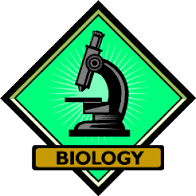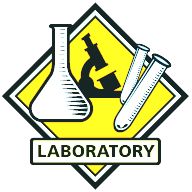Advanced Placement Biology - Granite City High School - Class Information

Instructor: Mrs. Shannan Muskopf
Email: [email protected] | Twitter: @musko101
Class Website: biologycorner.com
Required Textbook:
OpenStax Biology; http://biol.co/openstax1
Online version is free of charge and can be accessed from mobile phones, tablets, and computers.
Course Description:
Emphasis on science as a process, experience in scientific inquiry, recognition of unifying themes that integrate the major topics of biology, application of biological knowledge, and critical thinking to environmental and social concerns.
Major Topics: Chemistry of Life, Cell Biology, Evolution, Microbiology, Anatomy & Physiology, Inheritance, Molecular Biology, Ecology
Fulfills AP Biology's lab requirements; minimal of 25% of class time spent in lab. AP designation granted by College Board beginning 2009-2010
Course Objectives:

1. Gain knowledge and understanding of biology with respect to:
- molecules associated with living things
- cell structure and function
- genetics and the transfer of information
- evolution and natural history
- interactions between humans and the environment
2. To introduce students to critical thinking skills in applying biological information in real life situations
3. To develop skills in reading scientific texts and peer reviewed journal articles as a way to understand current advances in biology
4. To increase knowledge of the scientific method as a process ofr improving our understanding of the natural world
In addition, the course is approved as an AP biology course from the CollegeBoard and focuses on 4 Big Ideas:
1. Evolution: The process of evolution drives the diversity and unity of life.
2. Energy: Biological systems utilize free energy and molecular building blocks to grow, to reproduce, and to maintain dynamic homeostasis
3. Information: Living systems store, retrieve, transmit and respond to information essential to life processes
4. System: Biological systems interact, and these systems and their interactions possess complex properties.
Assessment
Your grade is based on weighted grades in three categories:
Homework (reading assignments, annotations, videos, chapter quizzes, note checkpoints) = 20%
Investigations (labs,case studies, virtual labs) = 30%
Exams = 50%There are 4 exams, one for each unit, and a potential for smaller tests throughout the unit. The majority of your grade will be based on the exams.
In the spring, you will have the opportunity to take the Advanced Placement Test. This test is graded on a 1-5 scale. Universities have different standards for scores they will accept for credit.
The final exam is NOT required for this class.
Class Conduct
It is expected that you participate in this class and engage with the material that is being presented. This means you are focused, taking notes, and asking questions. While you can access all of the notes at the class website, studies have shown that writing notes by hand on paper actually learn more. It may take practice to write things down as quickly as we discuss them in class, but you can always go and re-read the presentation. The writing of notes is part of the process of learning, try to THINK about what you are writing.
If you miss a day, you will need to view the slides on your own. Check with me when you return for any handouts you might have missed. If you are gone for longer period of time, email me and I will send you your homework and links to material you missed.
Keep up with the reading. As this is an advanced class, you are responsible for reading the chapters that go with the material. This is also part of the learning process. Many times, there won't be a grade associated with the reading, but trust me, unit assessments are very good at revealing who has done their homework and who has not.
This course follows a "flipped model" for some of its instruction. This means that you will also be responsible for watching videos related to labs and lectures. These videos will require you to take a quiz in skyward to show that you have watched them. These quizzes are categorized as "homework."
You are expected to treat me and your fellow students with respect. Many projects in this class will be done in small groups, which means you need to learn how to collaborate with your peers. Group work also requires a level of engagement for all of its members. Failure to fully participate in a lab or a group project will result in a grade deduction.
All students are expected fo follow the rules outlined in the Student Handbook.

Technology Policy
Cell phones are a distraction, and it has become increasingly a problem for everyone, whether it is school or place of employment. Cell phone use should be kept to a minimum. Many of the lectures include quizzes, polls and open-ended questions to help you understand the material, so they are not banned for this class. However, if your cell phone is becoming an impediment to your success, we may need to develop a different plan for you.
Cell phones and other devices will NOT be used during exams. If a cell phone is found being used during an exam, this counts as cheating and you will receive a 0.
Assignments
Throughout the year, there will be in-class activities, reading assignments, video quizzes, and class quizzes that may not be announced. Late work is accepted, with a 10% point deduction per day late. Many of the reading and writing assignments are due at midnight because you are expected to send them via email or google docs. Absence from class is not an excuse for failing to turn in assignments by their due date.
Readings and Textbook
Each unit has one or more chapters for you to read. In addition, you may be assigned other readings from current science news or chapters from other books. You will be given a quiz over your readings and may be required to answer questions or annotate articles.
Lectures
There are two types of lectures you may experience: a traditional in-class lecture with power point slides, or a lecture that is watched on youtube as homework.
Designate a notebook for this class only and take notes as you are in class and while you are watching videos. Write down any important vocabulary or concepts. All lecture slides can be viewed at the class website.
At the end of a section or chapter, there will be a "checkpoint" quiz where you will be allowed to use your notes. Develop ways to organize your notes so that you can easily find information.
Exams
Unit exams consist of multiple choice questions and a series of writing tasks that will ask you to demonstrate your knowledge of concepts from the unit. The tests are completed in 1 class period and you will not be able to use your notes.

Investigations (Labs):
The AP College Board requires that 20% of class time be laboratory based exercises. Many of these labs take multiple days and require lab reports or other writing assessments. While labs may be done in groups, final reports are individual exercises. You are responsible for doing your own report (unless stated in advance).
Case Studies are investigations where you read about a research project and analyze data. These projects are used as a substitute for labs that may be too dangerous or time consuming to complete in class. Grades for case studies are treated as lab grades and may or may not require a final individual report.
Some investigations may be short, in class demonstrations or quick observation-based labs.
Strategies for Success

1. This is a college level class and the work load can be demanding. You may, at times, have several projects and assignments going at once. Don't get behind! Use the calendar on your cell phone to keep track of due dates. If you are falling behind or have extenuating circumstances, contact me before it becomes a major problem. I am usually willing to work with students who have legitimate problems.
2. Engage with the material when you are in class. I cannot stress enough how important it is for your mind to be on the task at hand. Unlike freshman biology, this course focuses on big ideas and difficult concepts. It won't be enough to simply learn a list of vocabulary words. You need to assimilate information, understand it, and be able to coherently demonstrate that understanding in writing.
3. Vocabulary is still important, but it is not a major focus on the exams. On the other hand, since the exam questions are geared to higher levels of learning, like application and evaluation, the question likely cannot be answered without a vocabulary foundation.
4. There are no study guides. Instead, you will receive a list of unit objectives at the beginning of each unit. Keep this list handy, write notes on it check for your own understanding of each of the objectives. You are responsible for your own learning! I am usually at school at 7:30 am and will be happy to go over material with you or answer questions.
5. Sometimes, we may appear to get off track in class. I believe strongly that discussion and discourse result in real learning. If there is something current in the news that applies to biology, we might spend time talking about it. You are still responsible for this information. In fact, anything we have discussed in class, anything in the reading assignments or videos are FAIR GAME for the exam.
6. Attendance is importance, those who miss class frequently will not be very successful.
7. Talk to me! I will always be open and honest with my students, and I expect that you will extend the same courtesy to me. It is my responsibility to present the material of this course in a way that is conducive to learning. If I am not meeting that responsibility, then inform me! This is your class as much as it is mine and I'm not afraid to make changes when things aren't working.
